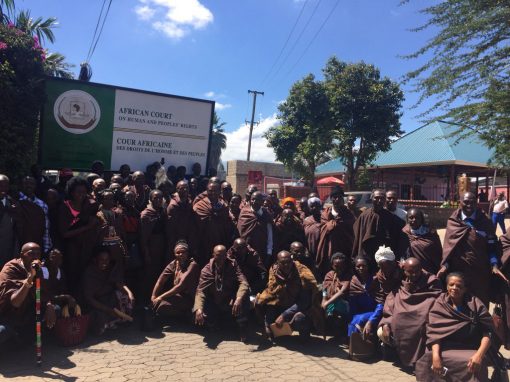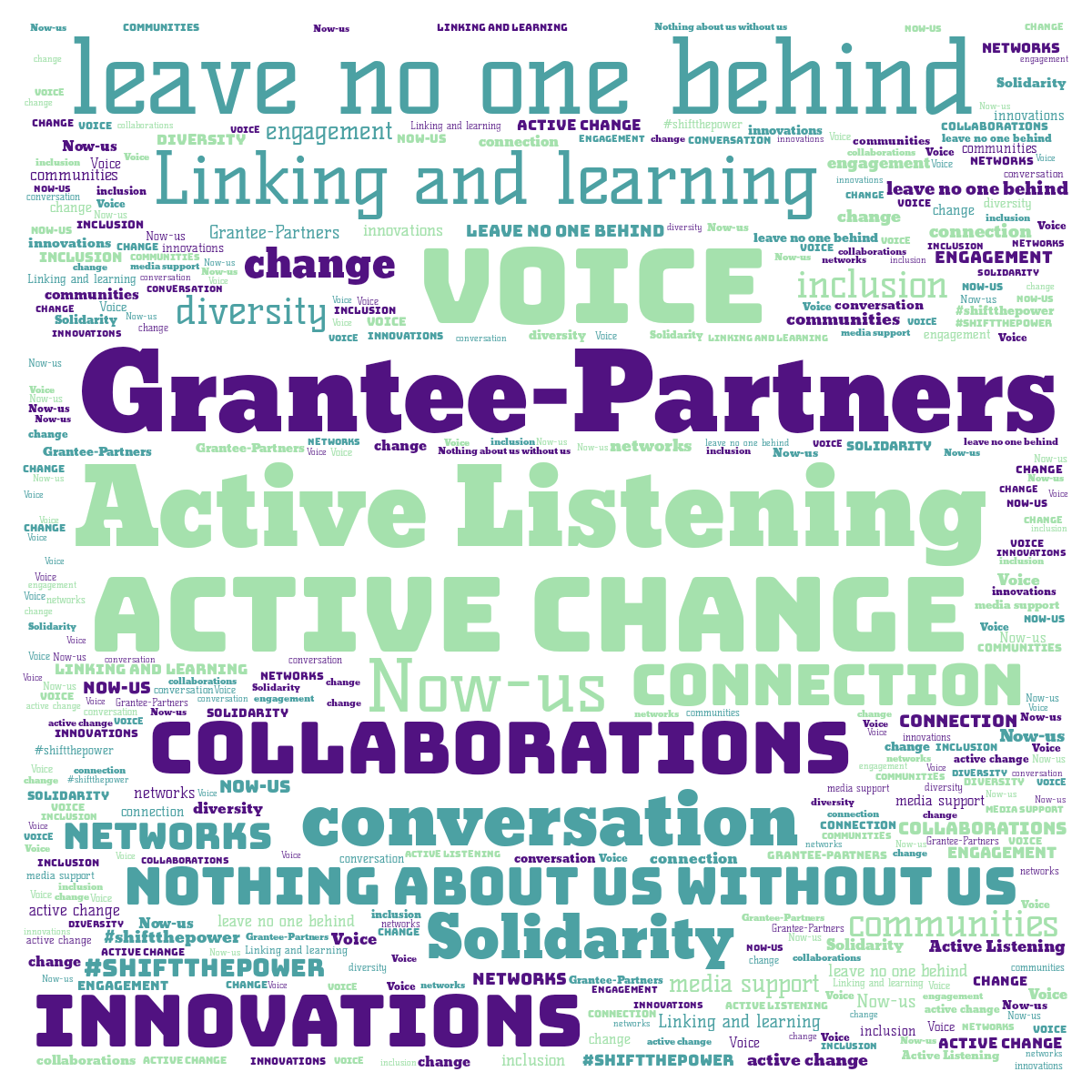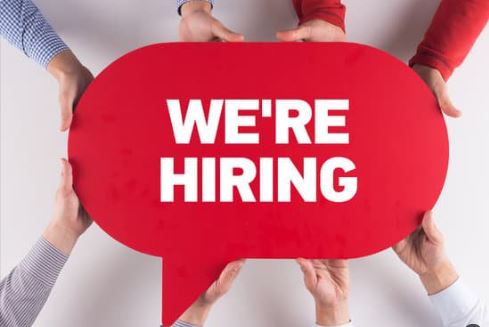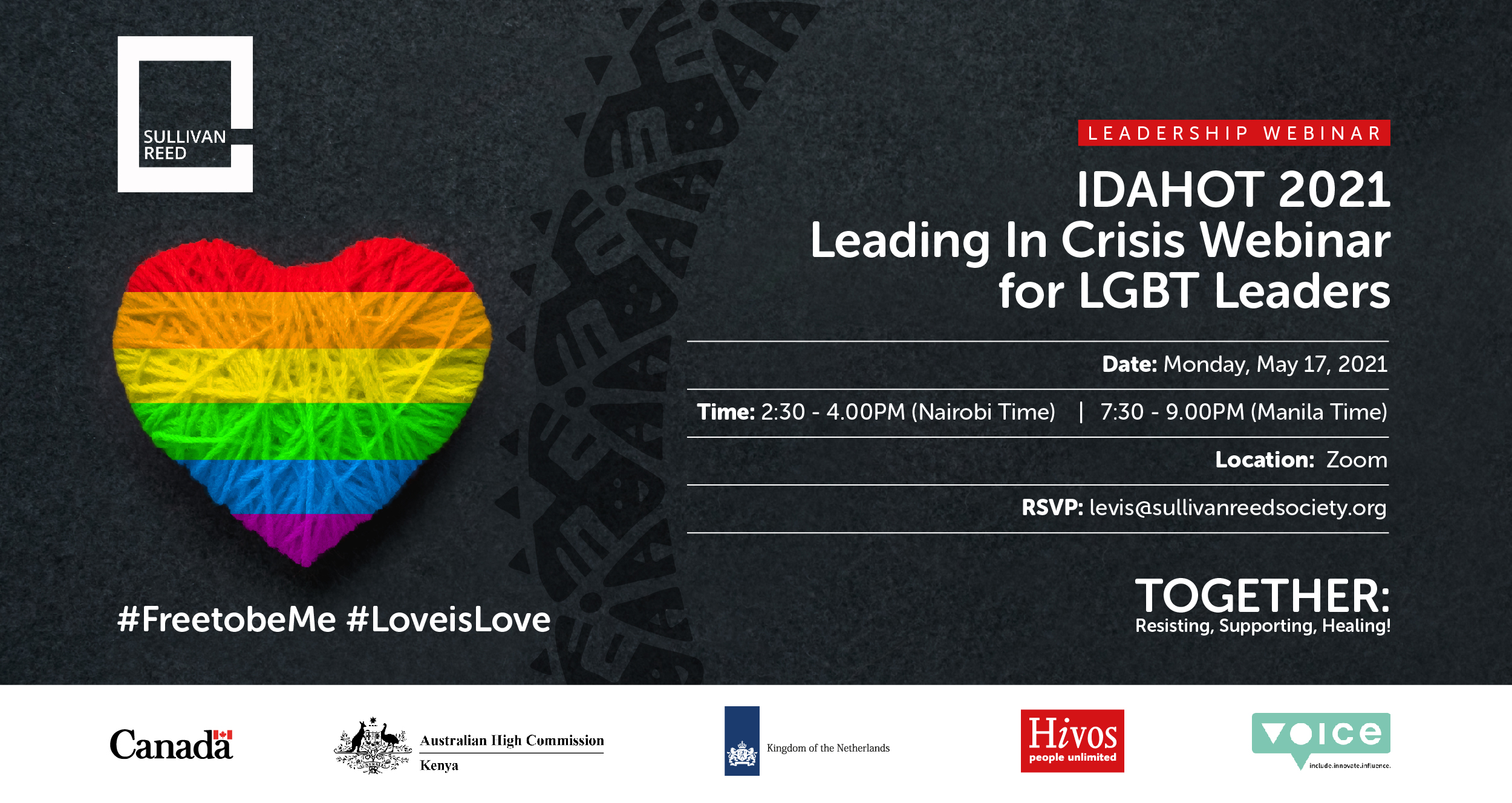Losing Control: One organisation’s journey learning to trust
Or, how can international NGOs engage with Voice?
– By Claire Thomas – Deputy Director of Minority Rights Group International
We all want partners to ultimately be independent, to be able to function without our support but handing over control to them can feel risky, it may be postponed, reasons can be found why they are not yet ready. Learning to cede control and trust our partners is much harder than it should be.
Over the last 8 years, together with my colleagues, I have been on a personal journey learning to trust, which has necessitated me confronting my need to be in control and my reluctance to completely rely on the partners we work with.
So, roughly speaking, 9 years ago:
All funding applications were submitted by MRG with MRG as lead applicant. We had a right of veto over what partners did and we were accountable to donors.
Now increasingly:
Funding applications are submitted by partners with partners as lead applicant. Partners have final say over what is done with the money and they are accountable to donors.
That change is not radical in terms of how things happen or in terms of what we do. But it is very important in terms of equality between organisations, in terms of living up to our values and in terms of really building partners’ capacities to function independently without international NGO support.
The change was triggered when we took part in a benchmarked, anonymised partners’ survey, commissioned by the UK development network organisation, BOND. The survey gathered feedback from partners anonymously in a way that partners would never have volunteered to us directly. Whilst there were areas where we did well compared with other organisations (e.g. supporting partners’ advocacy), there were also areas where the feedback was a shock to us. Partners did not always feel that they were treated with respect, they did not feel able to complain, and they did not feel that we were successful in building their capacity (again, benchmarked against results for other UK-based NGOs). This caused us to have a serious think about our ways of working and our relationships and it triggered a process of change which has led to much healthier, mutually respectful and productive relationships with our partners.
We shouldn’t have been surprised when Voice colleagues mentioned to us that their approach does not suit all international organisations due to the fact that under Voice it is the partners who need to make the applications, who need to be the lead applicant and who need to be in control.
Will Voice prompt more organisations to take the journey in learning to trust that we have followed?
I, for one, certainly hope so.
Here is how it works for us.
Although it varies, typically MRG would work with quite small organisations with few staff and still growing in their capacity. MRG does not see itself as a donor organisation because normally our unrestricted funds are very limited. So, if we agree to work on an issue with a partner organisation, we design a piece or programme of work jointly and then together we search around for the funding to do the work. And once the funding is available, we will implement the work together, with the partner leading on many aspects with support from MRG as needed, and MRG leading on a few things depending on what the partner feels comfortable doing (sometimes for security reasons, sometimes for capacity reasons, sometimes for efficiency reasons e.g. tracking advocacy and fundraising opportunities which we do centrally and share with all partners.) This quite often changes during the life of a project e.g. if an unexpected opportunity arises or a partner finds an aspect of a project unexpectedly difficult.
Sometimes the funding will come into MRG (e.g. typically from a large and complicated donor like the EU) and sometimes it will be given to the partner organisation directly. Around 7 years ago, MRG changed its partnership agreement to state that whichever organisation was receiving the majority of the funding for our piece of joint work would have the final say in an unresolvable disagreement between us. Unresolvable disputes are fortunately rare but the symbolism of having this in the partnership agreement is important. (The agreement also says that neither partner can insist on doing anything that breaches a contract with a donor.) This change in mentality to a much more equal working relationship was not easy for all staff and it requires a much greater level of mutual trust and better communication than a more traditional relationship between an international organisation and its partner. And it was not just some of our staff who struggled with this, we still find that some partner organisations consider us more like donors than true partners and this is feedback that independent evaluators still give us.
Nevertheless, overall this approach does work well and we also feel that it is the only approach that fits well with our values, which is now clear to all, although, we had run programmes for two decades working with partners in a way that did not reconcile with our values at all.)
This approach is why Voice funding works so well for us. Projects are conceived by partners and jointly designed by them and us. (Sometimes, it is our fundraising team that completes the application, with the partner approving and signing off throughout, sometimes we write about half each, sometimes partners write almost all of it with MRG only contributing to relevant sections and reviewing it). Applications are submitted by partners and funding is channelled by Voice to them. We then work with them to implement the project. The projects pays towards the staff time of MRG staff who work on it and any costs incurred by MRG on the project, as agreed with the partner who is the lead applicant and has the final say.
We think its great that our partners can be in control over these projects. Sometimes it does result in some frustration if we feel that an opportunity was missed or a threat not reacted to, and more frequently we will wish that things had been done slightly differently. But ultimately all partners need to be able to work independently of us if they are to be sustainable and we believe in learning by doing and learning from mistakes. (Provided, of course, that mistakes are not catastrophic – luckily we have not faced this, or if partners wanted to do something that we felt would be really unwise, we were able to discuss our concerns fruitfully with them). The gains, on equality of partnerships, sustainability, the project really meeting the needs of those closest to the beneficiaries totally outweigh any small frustrations we may feel from time to time.
Occasionally when we know that a donor will react badly to seeing MRG’s name mentioned (not VOICE!) partners apply with a project we have supported them to design to an opportunity with no mention of MRG at all. The project does include a consultancy line which we and the partner privately agree will be used to pay for MRG staff time to support them if the application is successful. Of course, once the funding is approved, they could use this to pay anyone and there are no guarantees that it will come to MRG, but we find (in all cases to date) that the value added of MRG is genuinely appreciated by partners and when this method is used they do still use the budget to get MRG’s support, when, of course there would be many cheaper local sources of advice available to them. We feel that this is because they can trust us to really have their interests at heart. And the fact that we can do this, and it works, tells us something important about the quality of our partnerships currently.
Alongside this we value partners in other ways:
- We always support partners to do advocacy on behalf of their communities rather than us speaking for them.
- Former or current partners serve on our Board, and our Committees
- Partners are asked about their priorities and views when we decide on strategy for the organisation
- We involve partners in evaluations, at minimum, all evaluators speak to them at length, but often they are also involved in the design of an evaluation as well.
- Because MRG is a relatively small and flat organisation, it is easier for a partner to speak to many different people within MRG and can raise a problem or a concern informally with someone other than their main contact person.
MRG’s approaches really stem from our deep commitment to human rights, equality and a rights based approach. A Human Rights based approach might not always be the smoothest, quickest, safest or easiest solution but beware of short cuts as they come with the risk of undermining, in the name of efficiency, of accountability, or of speed, what should be our fundamental aim, at the end of the day which is that every person and every community should develop to their full potential in a way which is sustainable for us as well as for our planet and all life on it.
MRGI received an Innovate and Learn grant from Voice plus is now a co-applicant in an Influencing grant called United for land rights in East Africa.







